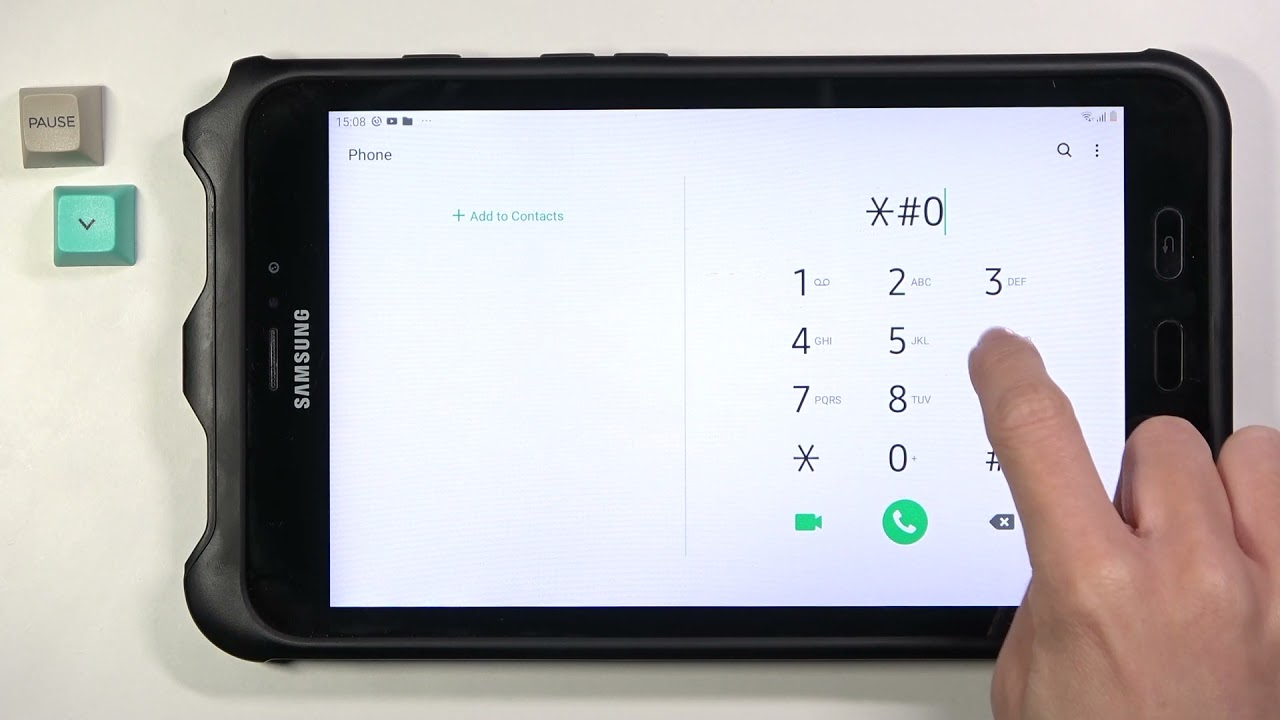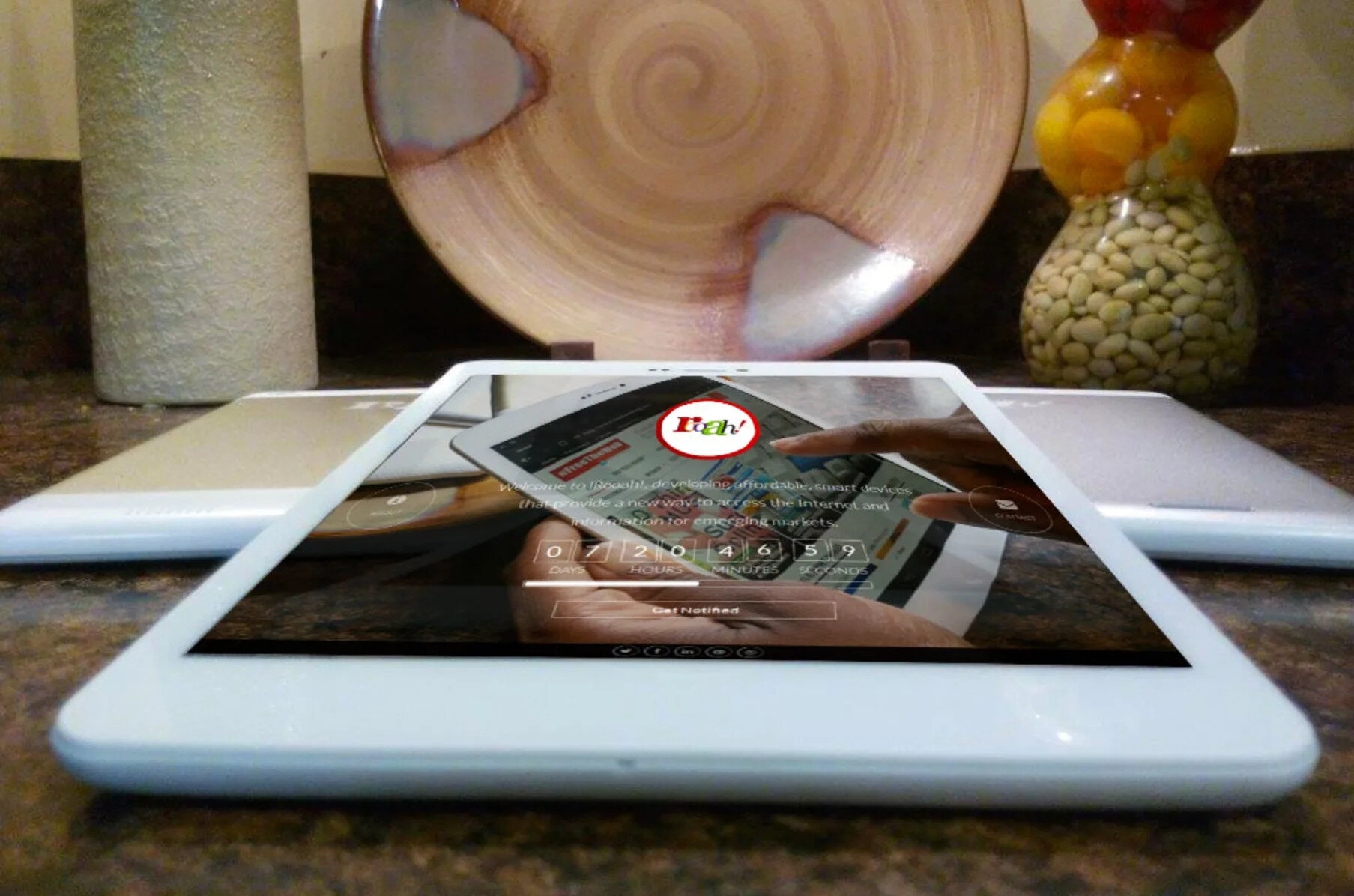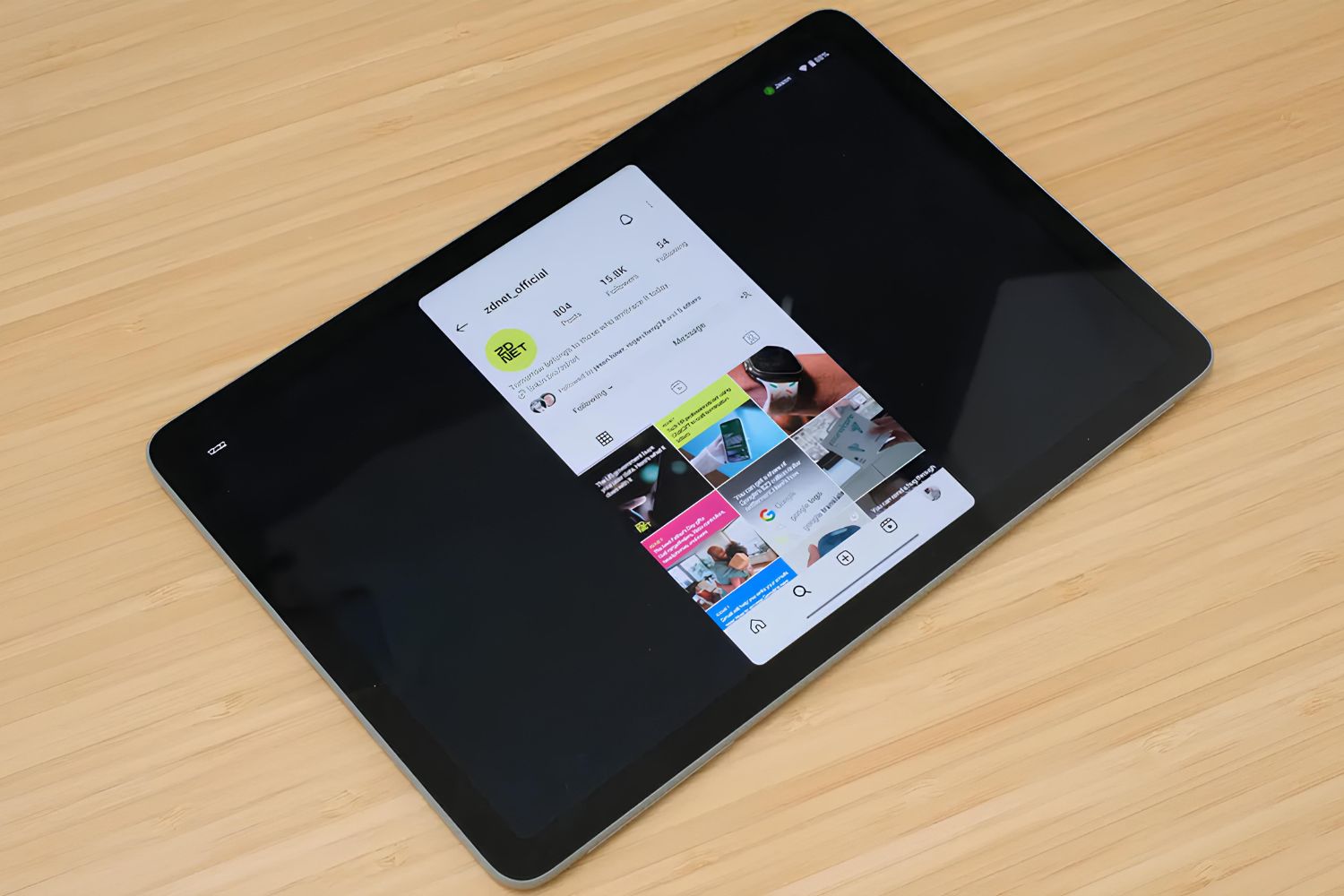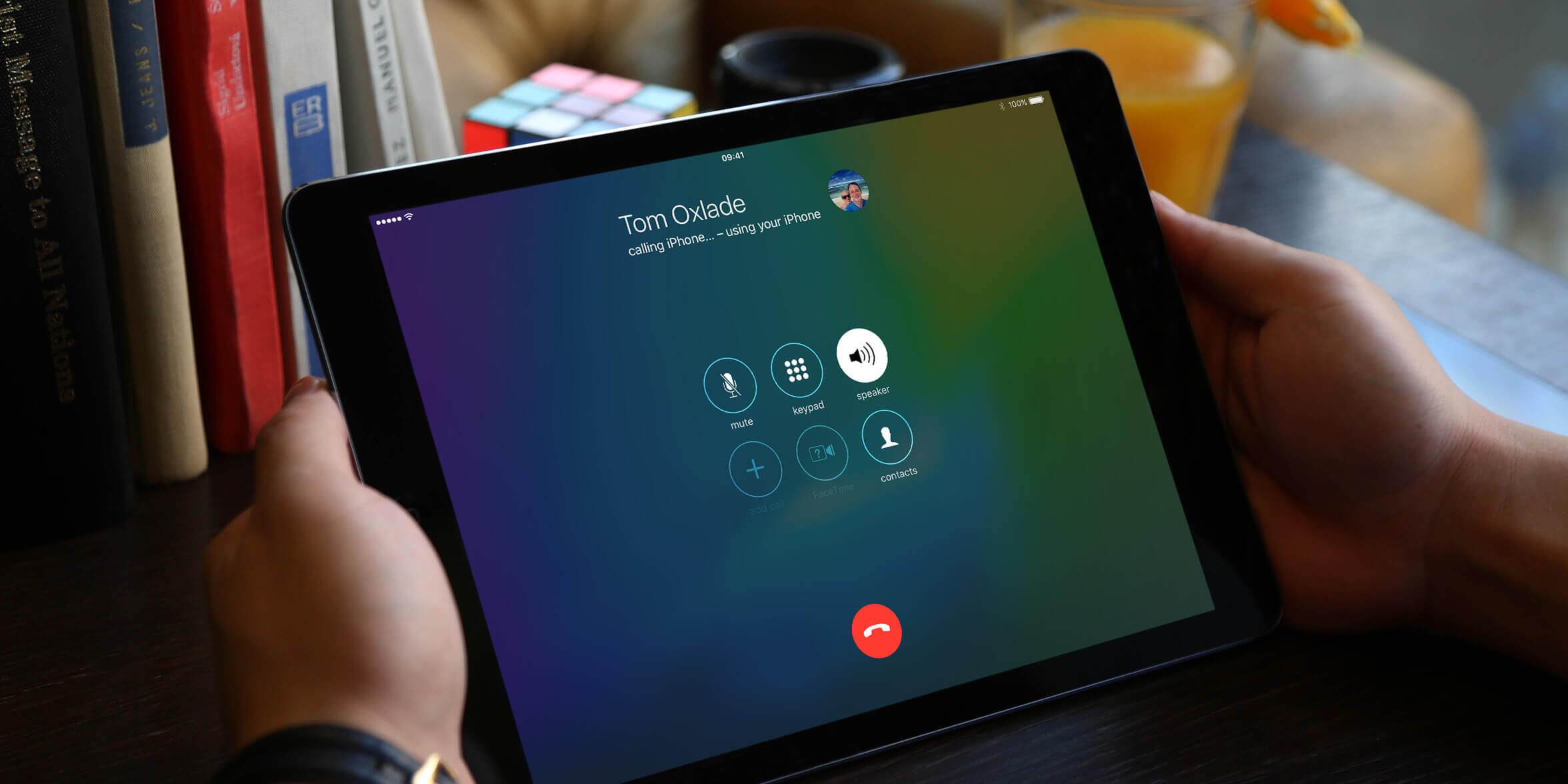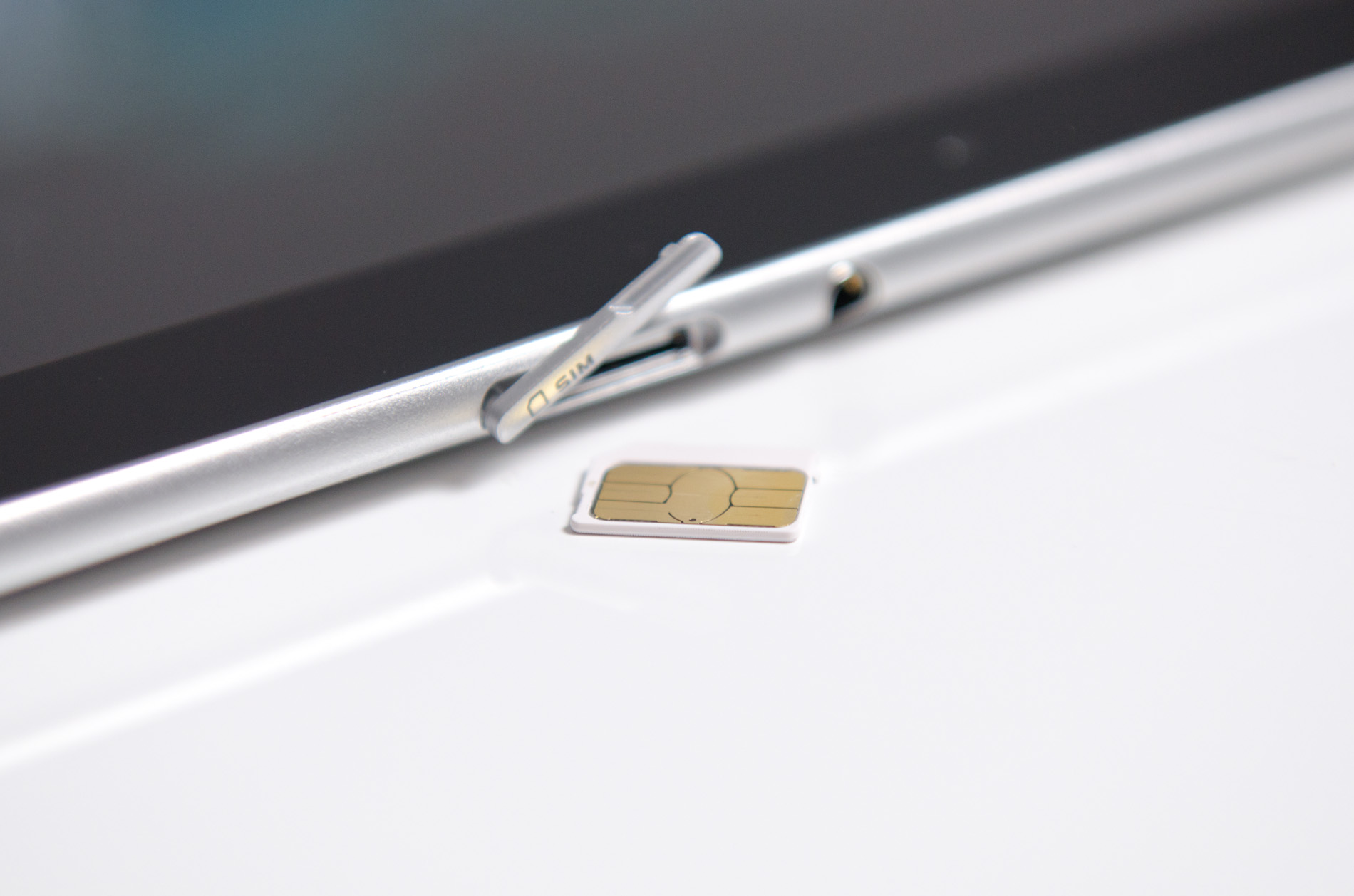Introduction
Tablet mobile devices have become an integral part of our modern lifestyle. With the advancements in technology, these versatile gadgets have transformed the way we communicate, work, and entertain ourselves. From browsing the internet to watching videos, playing games to managing our schedules, tablets have seamlessly integrated into our daily lives, providing convenience and accessibility on the go.
A tablet mobile is a portable electronic device that combines the functionality of a smartphone and a computer. It features a touch screen interface that allows users to interact with various applications and perform a wide range of tasks. Unlike traditional laptops or desktop computers, tablets are lightweight, sleek, and offer a more intuitive user experience.
Tablet mobiles come in different shapes and sizes, from compact 7-inch models to larger 12-inch variants. They are powered by operating systems like iOS, Android, or Windows, providing a vast ecosystem of apps and software to choose from. Whether you are a student, professional, or simply a tech enthusiast, a tablet mobile can be a valuable tool to enhance productivity and entertainment.
In this article, we will explore the features, advantages, and disadvantages of using a tablet mobile device. We will also provide you with valuable insights on how to choose the right tablet for your needs and delve into popular tablet brands that dominate the market.
So, if you are curious about what a tablet mobile has to offer and are considering investing in one, read on to discover the benefits and considerations associated with these versatile devices.
Definition of a Tablet Mobile
A tablet mobile, also known as a tablet or tablet computer, refers to a portable electronic device that combines the features of a smartphone and a computer. It typically consists of a touch screen display, eliminating the need for a physical keyboard or mouse. Tablets are designed to be held in one hand and offer a more intuitive and interactive user experience compared to traditional computers.
Tablet mobiles are characterized by their compact and lightweight design, making them highly portable and convenient for on-the-go usage. They often have a rectangular shape with rounded corners and are available in various screen sizes, ranging from 7 inches to over 12 inches. The display technology used in tablets can be LCD, OLED, or AMOLED, providing vibrant colors and sharp visuals.
These devices run on different operating systems such as iOS, Android, and Windows, each offering its own unique features and app ecosystems. Tablets are equipped with powerful processors, ample storage, and RAM, allowing users to run multiple applications simultaneously and store a large amount of data.
One of the distinguishing features of a tablet mobile is its touch screen interface. Users navigate through apps, websites, and menus by tapping, swiping, and pinching on the screen. This touch input method offers a more tactile and intuitive way of interacting with the device, enabling seamless browsing, gaming, and content consumption.
In addition to touch input, tablets often come with built-in cameras, speakers, and microphones, enabling users to capture photos and videos, make video calls, and enjoy multimedia content. They also have Wi-Fi and cellular connectivity options, allowing users to access the internet from anywhere and stay connected at all times.
Overall, tablets have revolutionized the concept of portable computing, providing a versatile and convenient alternative to traditional laptops and desktop computers. With their compact design, touch screen interface, and powerful capabilities, tablet mobiles have become indispensable tools for work, entertainment, and communication in our digital age.
Features of a Tablet Mobile
Tablet mobile devices offer a wide range of features that make them versatile and adaptable to various tasks and purposes. Here are some of the key features commonly found in tablets:
- Touch Screen Interface: Tablets are primarily operated through a touch screen display, allowing users to interact directly with their fingers or a stylus. The touch screen enables smooth navigation, precise input, and intuitive gestures like swiping, pinching, and tapping.
- Portability: Tablets are designed to be lightweight and portable, making them ideal for on-the-go usage. They are slim and compact, easily fitting into a bag or backpack, allowing users to access their digital content and applications wherever they go.
- Long Battery Life: Tablets are known for their impressive battery life, allowing users to use the device for extended periods without the need for frequent charging. This makes tablets suitable for extended travel, work, or entertainment purposes.
- Multimedia Capabilities: Tablets are excellent devices for multimedia consumption. They often come equipped with high-quality speakers, built-in cameras, and vibrant displays, enabling users to enjoy movies, videos, music, and games with immersive audiovisual experiences.
- App Ecosystem: Tablets provide access to a vast ecosystem of applications through their respective app stores. Users can download and install a wide range of apps for productivity, creativity, entertainment, social media, and more, enhancing the functionality and versatility of the device.
- Connectivity: Tablets offer various connectivity options, including Wi-Fi, Bluetooth, and cellular data. Users can connect to the internet, share files with other devices, and stay connected wherever they have network coverage.
- Storage Space: Tablets come with ample storage space to store documents, photos, videos, and apps. Additionally, many tablets offer the option to expand storage through microSD cards or cloud storage services, ensuring users have enough space for all their digital content.
- Productivity Tools: Tablets can be powerful productivity tools, especially when combined with accessories like detachable keyboards or stylus pens. They provide the mobility of a tablet with the functionality of a laptop, allowing users to work on documents, create presentations, and even draw or sketch with precision.
- Multi-User Support: Some tablet models offer multi-user support, allowing multiple users to have personalized accounts and access to their own apps, settings, and data. This feature is particularly useful in family settings or educational environments.
These are just a few of the many features that make tablets such versatile devices. Tablets have evolved to cater to various needs and preferences, transforming the way we work, learn, communicate, and entertain ourselves.
Advantages of Using a Tablet Mobile
The popularity of tablet mobile devices has surged in recent years, and for good reason. Tablets offer a host of advantages that make them a valuable tool for both personal and professional use. Here are some of the key advantages of using a tablet mobile:
- Portability: One of the biggest advantages of using a tablet mobile is its portability. Tablets are lightweight and slim, allowing users to carry them easily wherever they go. Whether you need to stay productive while traveling or want to enjoy entertainment on the move, tablets provide the perfect solution.
- Easy to Use: Tablets are designed with simplicity in mind. Their touch screen interface makes them extremely easy to use, even for those who are not tech-savvy. The intuitive gestures and user-friendly operating systems provide a seamless and enjoyable user experience.
- Versatility: Tablets are versatile devices that can adapt to various needs and scenarios. From browsing the web and checking emails to creating documents and editing photos, tablets can handle a wide range of tasks, making them suitable for both work and play.
- Long Battery Life: Tablets typically offer impressive battery life, allowing users to use them for extended periods without worrying about constant recharging. This longer battery life is especially beneficial for those who are constantly on the move or need their device to last through a full day of work.
- Wide Range of Apps: Tablets provide access to an extensive app ecosystem, offering a vast array of applications for different purposes. From productivity apps for note-taking and document editing to entertainment apps for streaming movies and playing games, tablets offer countless options to enhance your mobile experience.
- Enhanced Multimedia Experience: Tablets excel at multimedia consumption. They have large, high-resolution displays that provide immersive visuals, making them perfect for watching movies, playing games, or enjoying multimedia content. Many tablets also have superb audio capabilities, enhancing the overall viewing or listening experience.
- Productivity on the Go: Tablets can serve as powerful productivity tools. With their touch screen interface and ability to run productivity apps, tablets allow users to work on documents, presentations, and spreadsheets while on the go. Some tablets even offer compatibility with external keyboards and stylus pens for a more efficient and precise input experience.
- Connectivity: Tablets offer various connectivity options, including Wi-Fi, Bluetooth, and cellular data. This allows you to stay connected to the internet and access your emails, social media, and cloud services wherever you are. Tablets also make it easy to share files, collaborate with others, and stay connected with friends and family.
- Entertainment and Gaming: Tablets are excellent devices for entertainment and gaming. With access to streaming services, music apps, and a wide range of games, tablets can provide hours of entertainment, whether you’re relaxing at home or traveling.
These advantages demonstrate why tablets have become an indispensable part of modern life. Their portability, ease of use, versatility, and ability to enhance productivity and entertainment make them a valuable companion for a wide range of users.
Disadvantages of Using a Tablet Mobile
While tablet mobile devices offer numerous advantages, it’s important to consider their limitations and potential drawbacks. Here are some of the disadvantages of using a tablet mobile:
- Limited Processing Power: Compared to desktop computers or laptops, tablets generally have less processing power. This can limit their ability to handle resource-intensive applications or complex tasks, making them less suitable for demanding workloads or intensive multitasking.
- Limited Storage Space: Tablets often have limited built-in storage space, especially in entry-level models. This can be problematic if you have a large library of media files or need to store a significant amount of data. While cloud storage services offer a solution, they may require a stable internet connection.
- Screen Size Constraints: Although tablets come in various screen sizes, some tasks, such as extensive document editing or graphic design, may be more challenging due to the smaller display area compared to larger devices like laptops or desktop monitors.
- Software Limitations: While tablets have access to a wide range of apps, certain software programs or specialized applications may not be available or optimized for tablets. This can limit the device’s capabilities in specific industries or professional settings.
- Limited Input Options: Tablets predominantly rely on touch screen input, which may not be as comfortable or efficient for certain tasks, such as extensive typing or precise design work. External accessories like keyboards or stylus pens can be added, but they may come at an additional cost.
- Dependence on Battery Life: Tablet mobiles rely heavily on their battery life, which can be a concern during extended use or when access to charging points is limited. If the battery runs out, the device becomes temporarily unusable until it is recharged.
- Fragility: Due to their slim and lightweight design, tablets can be more prone to damage from accidental drops or impacts compared to bulkier devices. Protecting a tablet with a case or cover is recommended to minimize potential damage.
- Software and System Updates: As with any electronic device, tablets require regular software updates to ensure performance, security, and compatibility with newer applications. These updates can sometimes be time-consuming and may require significant storage space.
- High Cost: Compared to entry-level laptops or desktop computers, tablets can be relatively expensive, especially high-end models with advanced features. The cost of accessories, such as keyboards or stylus pens, can also add to the total expense.
- Limited Repair Options: In the event of hardware or software issues, repairing a tablet can be more challenging and costly compared to more traditional computers. This is due to their compact design, specialized components, and the need for specialized repair services.
While these disadvantages may influence certain users’ decisions, it is important to weigh them against the benefits and consider individual needs and preferences when deciding whether a tablet mobile is the right device for you.
How to Choose the Right Tablet Mobile
With the wide variety of tablet mobile devices available in the market, it can be challenging to determine which one is the best fit for your needs and preferences. Here are some key factors to consider when choosing the right tablet:
- Operating System: Consider which operating system aligns with your preferences and requirements. iOS, Android, and Windows are common choices, each offering a unique user interface and app ecosystem.
- Screen Size: Determine the screen size that suits your usage patterns. Larger screens are ideal for media consumption and productivity tasks, while smaller screens offer greater portability.
- Performance: Look for a tablet with sufficient processing power, RAM, and storage capacity for your intended usage. Consider how you plan to use the device and ensure it can handle your desired applications and tasks smoothly.
- Battery Life: Consider the battery life of the tablet, especially if you anticipate long periods of usage without access to a charging point. Look for tablets with longer battery life to avoid frequent recharging.
- Connectivity Options: Evaluate the connectivity options available on the tablet. Consider if you need Wi-Fi, cellular data, Bluetooth, or USB connectivity and ensure the device supports the necessary standards and protocols.
- Display Quality: Assess the display quality, including resolution, color accuracy, and brightness levels. A high-quality display enhances the viewing experience, especially for multimedia consumption and graphic-intensive tasks.
- Camera Quality: If you plan to use the tablet for photography or video conferencing, consider the camera quality. Look for higher megapixel counts, advanced image stabilization, and other features that suit your photography needs.
- Storage Capacity: Consider your storage needs and choose a tablet with sufficient built-in storage. Additionally, check if the tablet offers expandable storage options like microSD card slots or support for cloud storage services.
- Accessories: Check the availability and compatibility of accessories such as keyboards, stylus pens, or cases. These accessories can expand the functionality and versatility of the tablet.
- Budget: Set a budget range and explore tablets within that range. Compare the features, specifications, and reputation of different brands to make an informed decision that provides the best value for your investment.
By considering these factors and conducting thorough research, you can select a tablet mobile that aligns with your specific needs, ensuring a satisfying and fulfilling user experience.
Popular Tablet Mobile Brands
When it comes to choosing a tablet mobile, there are several well-established brands that consistently deliver quality devices. Here are some of the most popular tablet mobile brands in the market:
- Apple: Apple’s iPad series is renowned for its sleek design, powerful performance, and seamless integration with the iOS ecosystem. iPads offer a wide range of models, including the standard iPad, iPad Air, and iPad Pro, catering to different user needs and budgets.
- Samsung: Samsung’s Galaxy Tab series is highly regarded for its versatile features, expansive display options, and robust performance. From budget-friendly options to high-end models, Samsung tablets come with user-friendly interfaces and access to the extensive Android app ecosystem.
- Amazon: Amazon’s Fire tablets are popular for their affordability and seamless integration with Amazon’s vast content ecosystem. These tablets provide a great option for media consumption and offer features like Alexa integration for hands-free voice control.
- Microsoft: Microsoft’s Surface tablets have gained recognition for their productivity-focused features and the ability to run full desktop operating systems like Windows 10. Surface tablets combine the portability of a tablet with the functionality of a laptop, making them suitable for professionals and creatives.
- Lenovo: Lenovo offers a diverse range of tablets, varying from budget-friendly options to high-performance models. Their tablets are known for their solid build quality, reliable performance, and innovative features.
- Google: Google’s own line of tablets, such as the Pixel Slate, offers a pure Android experience along with powerful performance and access to a vast range of apps on the Google Play Store. These tablets are popular among Android enthusiasts who prefer a stock Android experience.
- Huawei: Huawei’s tablets are recognized for their sleek design, impressive battery life, and competitive pricing. They offer a wide range of tablets, including both Android-based models and those using Huawei’s HarmonyOS.
- ASUS: ASUS tablets are known for their balance between performance and affordability. They offer a range of options, including budget-friendly choices and more powerful models for those seeking a high-performance tablet.
- Sony: Sony’s Xperia series of tablets are appreciated for their sleek design, vibrant displays, and audio capabilities. These tablets provide an enjoyable multimedia experience and are often favorably reviewed for their exceptional build quality.
- LG: LG has produced tablets that strike a balance between features, performance, and design. Their tablets offer good displays, impressive audio quality, and solid performance, catering to a variety of user preferences.
These brands have established themselves as reliable providers of tablets, offering a range of options to suit different budgets, preferences, and usage requirements. By considering the reputation, features, and user reviews of these brands, you can make an informed decision when selecting the right tablet mobile device for your needs.
Conclusion
Tablet mobile devices have revolutionized the way we work, play, and stay connected in our modern world. With their portable design, user-friendly interfaces, and versatile features, tablets have become an integral part of our daily lives. Whether you’re a student, professional, or casual user, tablets offer a range of advantages that make them a valuable tool.
In this article, we explored the definition of a tablet mobile and discussed its features, including the convenient touch screen interface, portability, and multimedia capabilities. We also highlighted the advantages of using a tablet, such as their ease of use, versatility, and long battery life. However, we also addressed some of the key disadvantages, such as limited processing power and storage space.
To choose the right tablet mobile, we discussed important factors to consider, such as the operating system, screen size, performance, and connectivity options. We also provided insights into popular tablet mobile brands like Apple, Samsung, Amazon, and Microsoft, among others, helping you make an informed decision based on your needs and preferences.
In conclusion, tablet mobile devices have undoubtedly transformed the way we interact with technology, offering a portable, intuitive, and versatile experience. Whether you’re using a tablet for work, entertainment, or communication, understanding its features, advantages, and limitations will enable you to make the most of this powerful device. By considering individual needs and preferences, researching different options, and choosing a reputable brand, you can find the perfect tablet mobile device that complements your lifestyle and enhances your digital experience.









